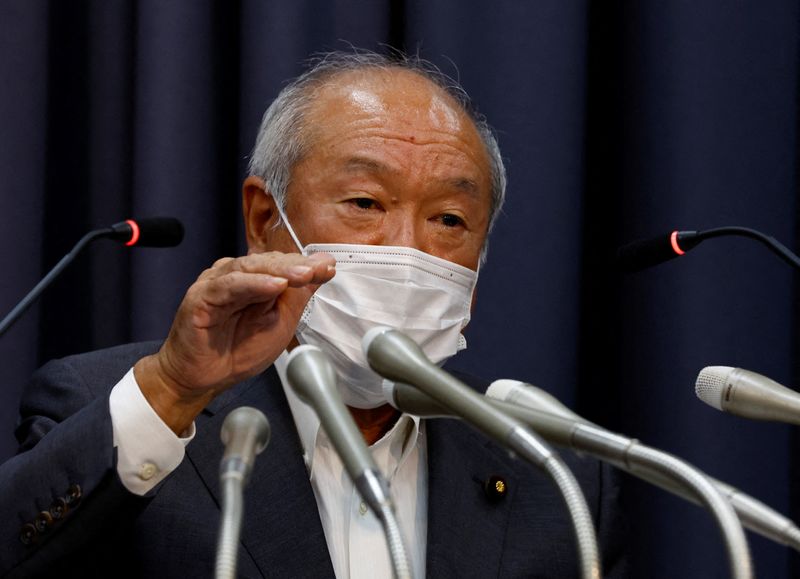By Yoshifumi Takemoto and Takaya Yamaguchi
TOKYO (Reuters) -Japan will unveil on Friday a fresh spending package of more than $200 billion that includes steps to curb electricity bills, sources told Reuters, which could tame inflation next year and help the central bank justify keeping ultra-low interest rates.
Prime Minister Fumio Kishida's administration has pledged to compile a spending package this month to cushion the economic blow from rising fuel and food prices, which would follow big measures deployed during the COVID-19 pandemic.
Facing calls for big spending from within his ruling party, Kishida is expected to announce a package that includes spending of more than 29 trillion yen ($200 billion), three ruling party and government officials told Reuters by Thursday.
The amount includes subsidies to cut household electricity bills by roughly 20% from January to September next year, according to a draft of the package obtained by Reuters.
"Spending will be between 26 trillion and 30 trillion yen, probably much closer to 30 trillion yen," a ruling Liberal Democratic Party official told Reuters late on Wednesday.
Analysts expect the subsidies to push down core consumer inflation, which exceeded the central bank's 2% target for six straight months in September, early next year.
"Of components that make up the consumer price index, the subsidies would affect electricity and gas bills. Technically, they will push down Japan's inflation rate in January-March," analysts at Daiwa Securities said in a research note.
After accelerating to around 3.2% toward December, Japan's core consumer inflation will likely slow to about 1.7% by March due to the subsidies, the Daiwa analysts said.
SMBC Nikko Securities also expects the electricity and gas subsidies to push down year-on-year core consumer inflation by around 1.1% points in January.
The downward impact from the subsidies will moderate from April, when utilities revise charges taking into account the rise in import costs from the weak yen.
Details of the package won't be announced in time for the Bank of Japan to incorporate in fresh growth and inflation forecasts, due out on Friday.
But it may affect how the BOJ sees the broader price trend, as the subsidies would offset some of the inflationary pressure from a tightening job market, analysts say.
The BOJ is set to keep ultra-low interest rates on Friday and its pledge to maintain massive stimulus on the view the recent cost-push inflation will prove temporary.
The huge spending could also force the government to issue additional bonds and strain Japan's already worsening finances.

Several rounds of heavy spending to cope with COVID-19 pushed Japan's outstanding balance of long-term debt to 1,212 trillion yen as of March, or 219% of the size of its economy.
($1 = 145.2800 yen)